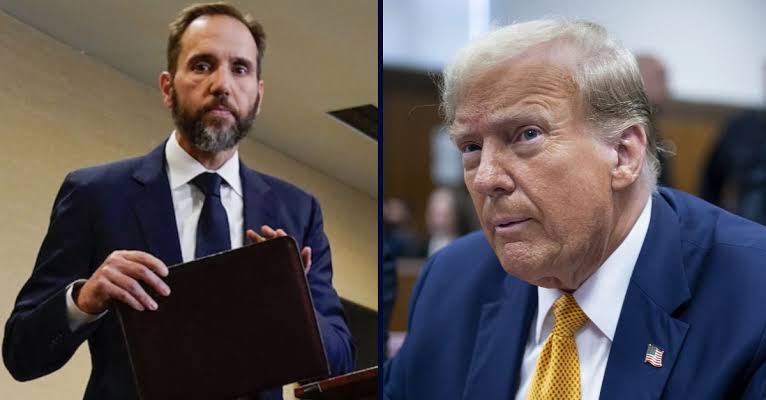‘I feel sad’: ‘Disappointed’ Trump trashes his own lawyers right in front of them but blames court failures on ‘rigged judges’ just after he seeks new E. Jean Carroll trial
Following oral arguments on Friday at the U.S. Court of Appeals for the Second Circuit, where Donald Trump sought a new trial in E. Jean Carroll’s civil lawsuit, the former president expressed his dissatisfaction with his legal team during a press conference. Trump criticized his lawyers, who stood silently behind him, stating that his “legal talent” has been unable to “overcome rigged judges” and biased juries. Trump was in Manhattan to attend court as his appellate attorney, D. John Sauer, argued that Senior U.S. District Judge Lewis Kaplan had “erred” in his decisions regarding evidence, necessitating a new trial in the case known as Carroll II.

In May 2023, a jury found Trump liable for sexually abusing Carroll in the 1990s and defaming her when he denied the allegations during his presidency, resulting in a $5 million damages award (with an additional $83 million in a related defamation lawsuit known as Carroll I). Trump’s legal team contended that the verdict was “unjust and erroneous,” influenced by “flawed and prejudicial evidentiary rulings.” These rulings allowed two of Carroll’s “lifelong friends” to testify about their “vague recollections” of Carroll confiding in them about the incident, as well as the testimonies of Trump accusers Jessica Leeds and Natasha Stoynoff, and the infamous Access Hollywood recording where Trump made controversial remarks, which he later dismissed as “locker room talk.”
During Friday’s court proceedings, Sauer argued before a panel of U.S. circuit judges, all appointed by Democratic presidents, that Carroll’s case was a “quintessential he-said she-said” situation. He claimed that decades after the alleged incident, Carroll accused Trump of sexually assaulting her in a Bergdorf Goodman dressing room in New York City and managed to introduce “highly inflammatory, inadmissible evidence” and “prejudicial, untested allegations of prior bad acts” into the trial to persuade the jury of a “pattern” of misconduct and secure a liability finding.


Comments are closed, but trackbacks and pingbacks are open.